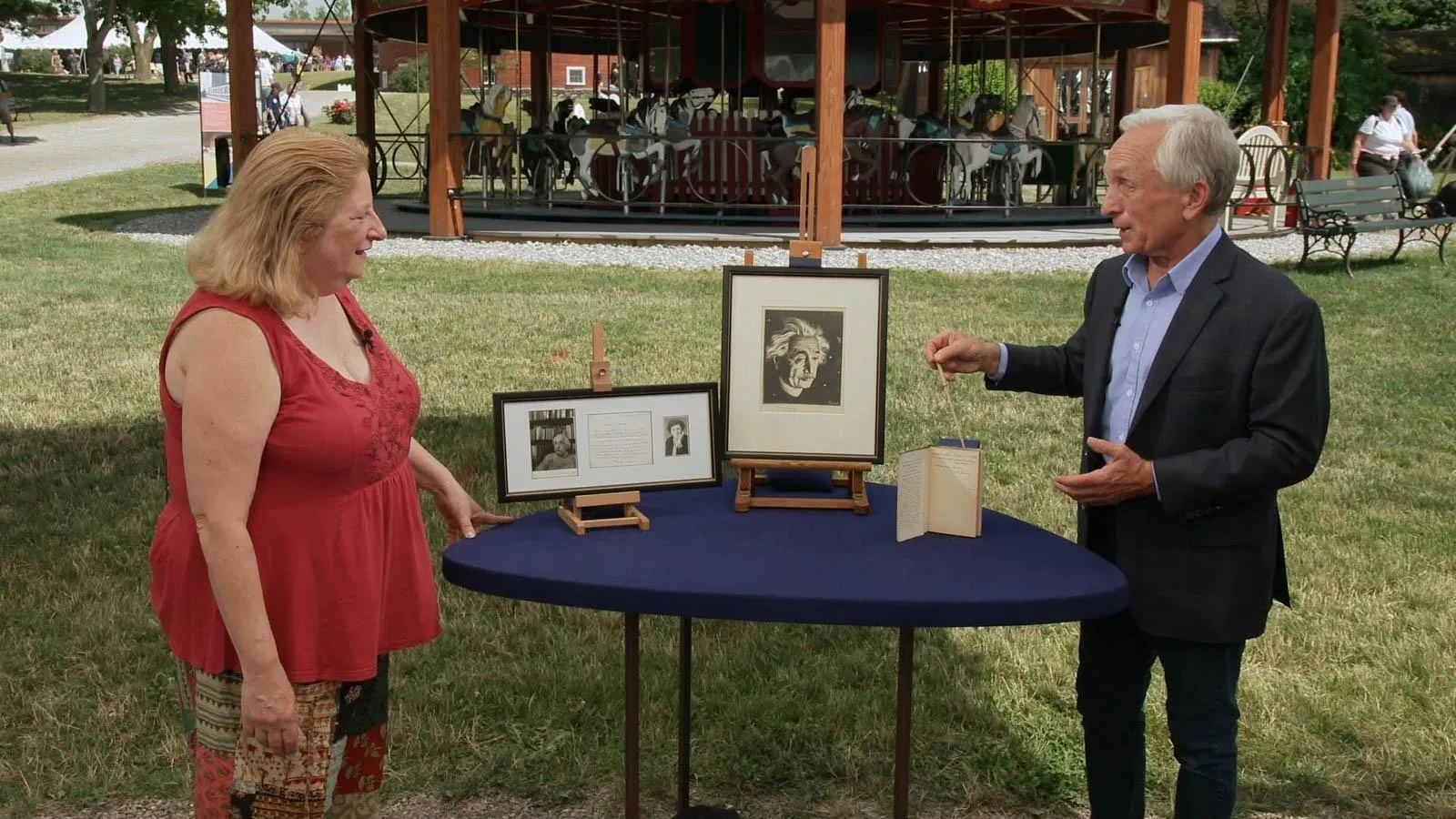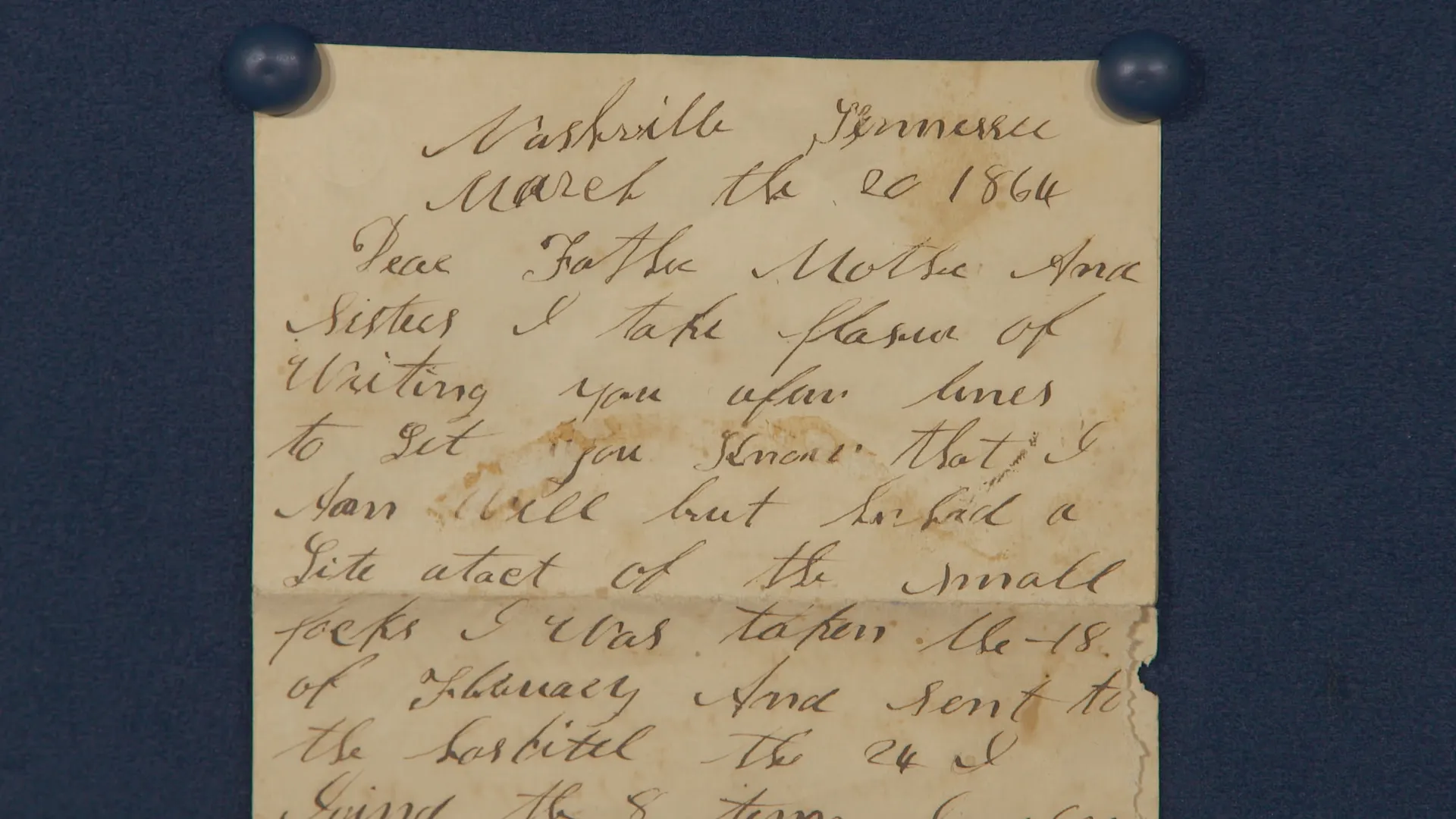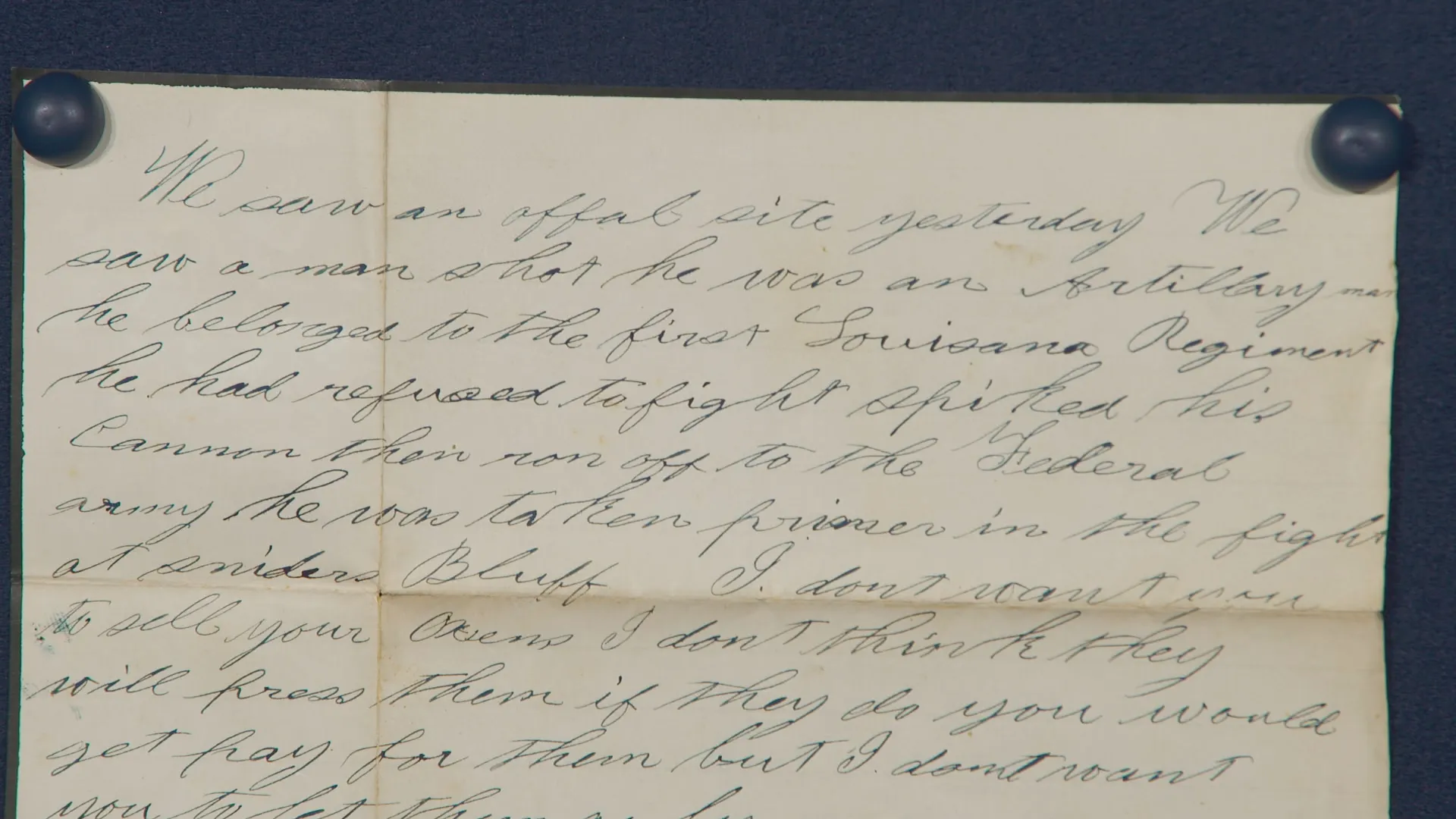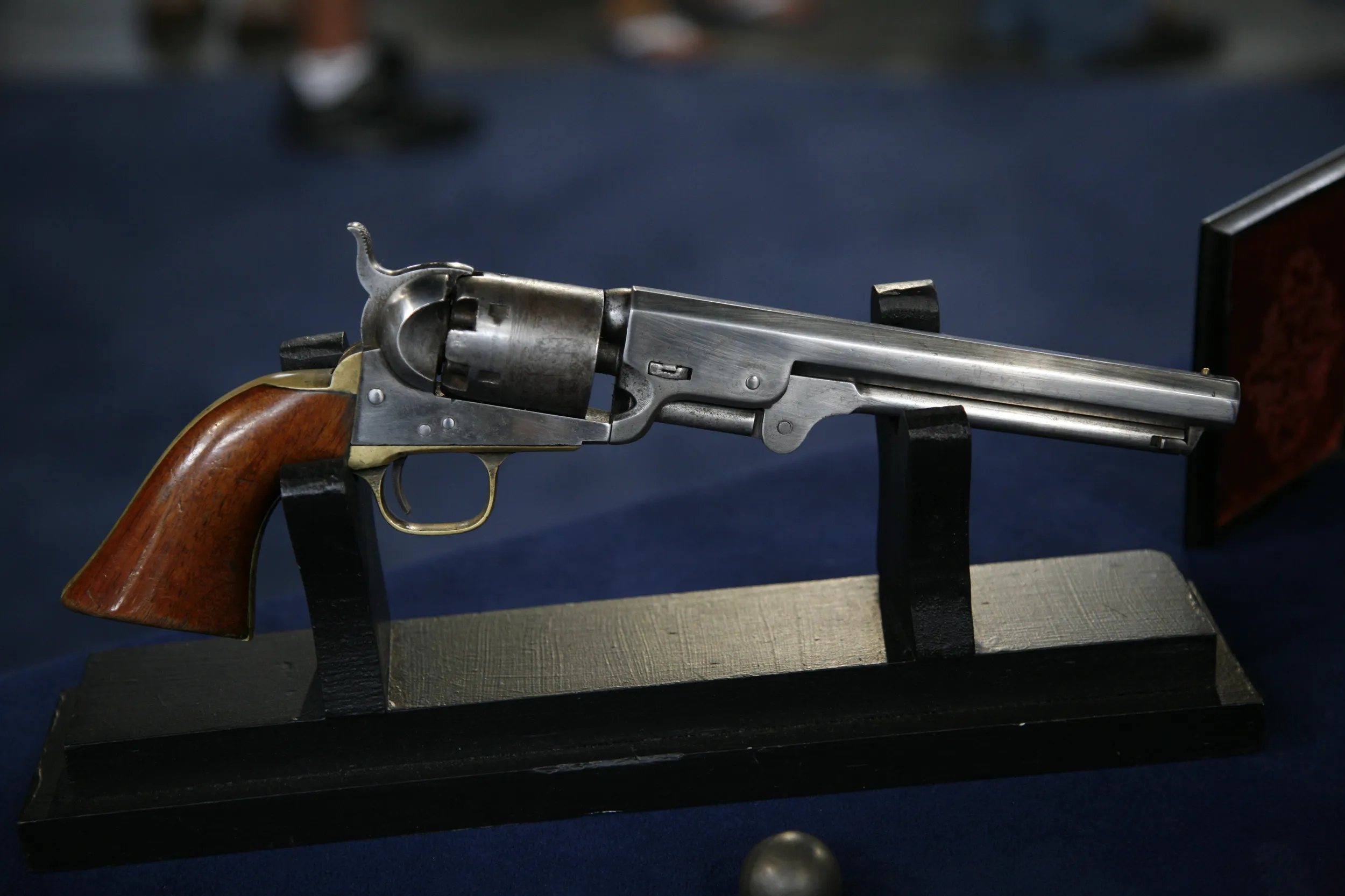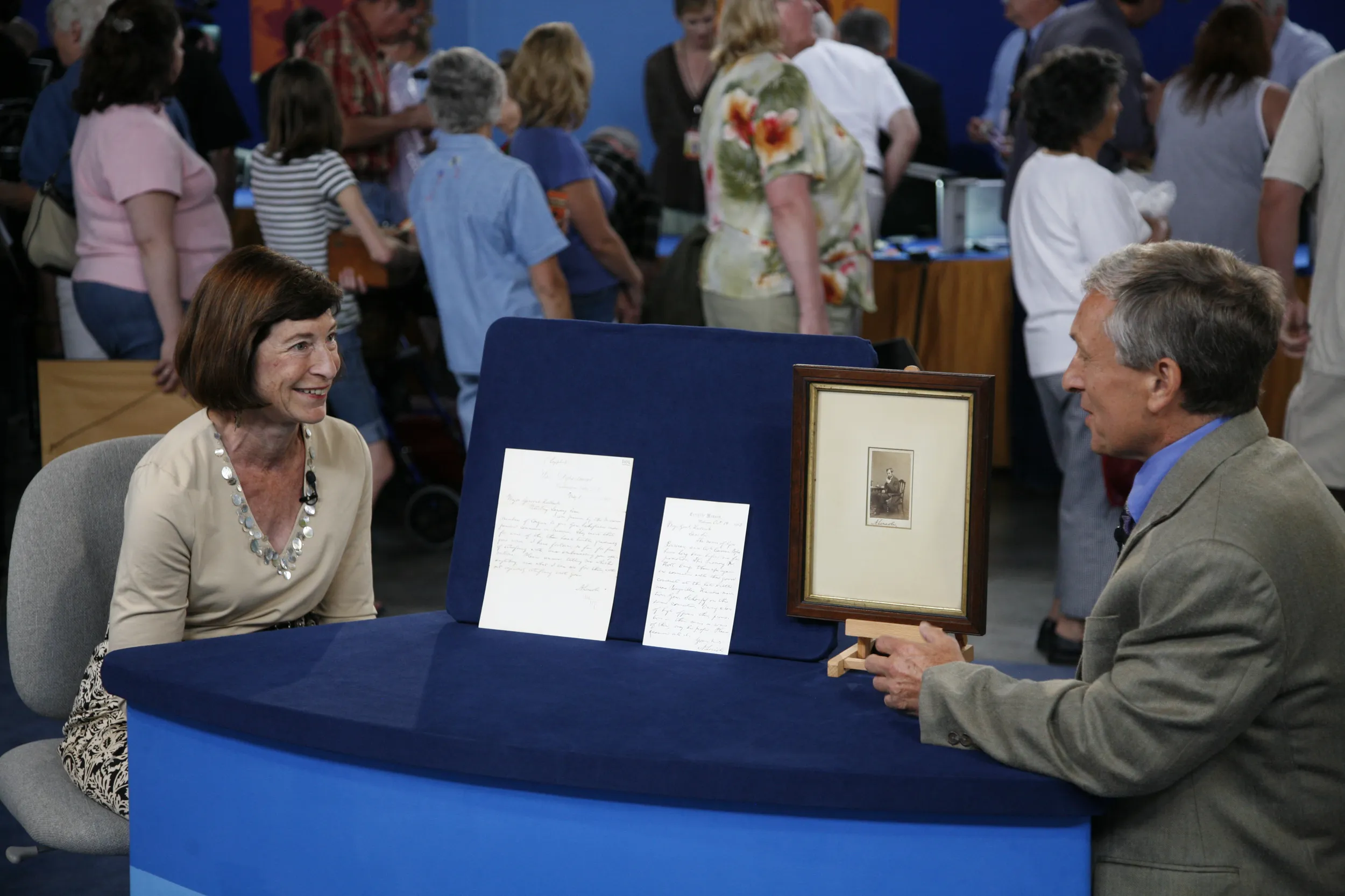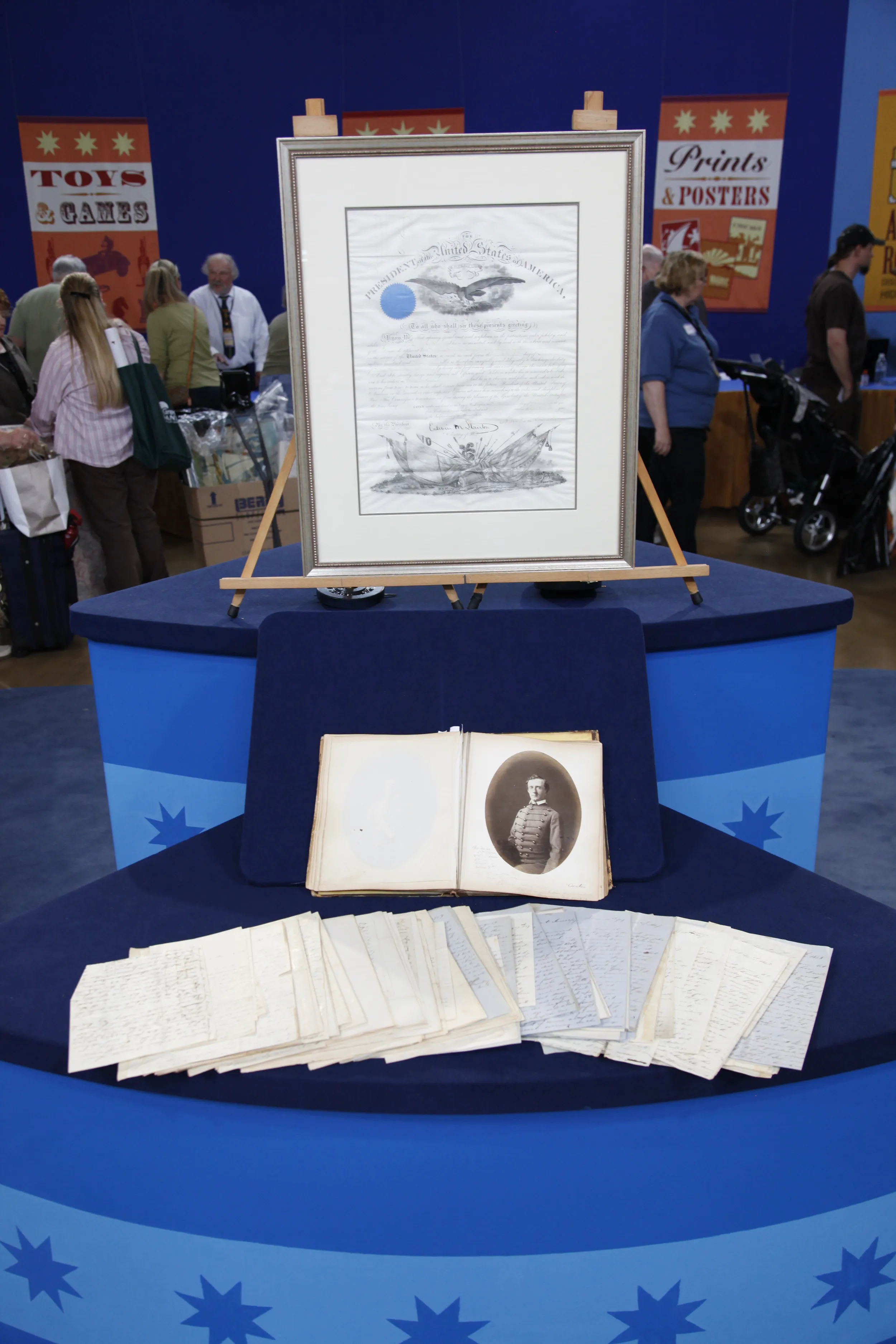GUEST: These are our group of Civil War letters that are from two brothers that were at the Siege of Vicksburg. They wrote the letters together and signed them Lem and Cam McNabb. From what little research that I have done, it looks like Lem was probably captured at Vicksburg, and then later died in prison. And the, Cam went on to be also captured at, at Vicksburg, paroled on July the 4th of '63, and joined the Union Army February of '64 in Nashville.
APRAISER: And you're right, we did a little bit of research on the brothers.
GUEST: Mm-hmm.
APPRAISER: And Lemuel was actually captured on May 17 at the Battle of Big Black River Bridge. Somewhere between 260 and 329 members of that regiment were captured that day.
GUEST: (whispers): Wow.
APPRAISER: Those guys all got a ticket up North to Fort Delaware. Mm. And the reason we don't hear from Lem anymore is, a few months later, he dies in prison. Campbell takes another way out. He gets captured when the city falls. He's part of the regiment that survives that battle. And as you noted, he then turns and joins the Union Army. He galvanizes, and becomes a Galvanized Yankee fighting for the Union. That's just something you don't normally see in a group of letters. Now, there's a lot of reasons he might have made this decision. It might have just been a very practical one because he didn't want to go to prison. He didn't want to have to deal with being trapped in a parole camp, waiting to be exchanged. He may have also not wanted to fight for the Confederacy in the first place.
GUEST: Mm.
APPRAISER: A lot of the East Tennesseans were Union sympathizers.
GUEST: Mm-hmm.
APPRAISER: They did not vote for Tennessee to secede.
GUEST: Ah.
APPRAISER: It was Middle Tennessee and West Tennessee that really forced the issue, as far as seceding from the Union. And it's also possible that what he saw in Vicksburg, which was one of the most horrific places to be during the siege, if you were on the Confederate side, may well have affected his decision. Outside, you've got a Union Army that's relatively well supplied. They're eating, they're relatively healthy...
GUEST: Uh-huh.
APPRAISER: ...in the greater scheme of things. And inside Vicksburg, you've got people literally living on rats to survive. And it's not just the two we've got here. You have an entire archive of roughly 20 letters. This letter has a particularly interesting description of something that he saw while he was in the defenses of Vicksburg. "We saw an awful sight yesterday. "Saw a man shot. "He was an artilleryman, "belonged to the First Louisiana Regiment. "He had refused to fight, spiked the cannon, and ran off to the Federal Army." Of course, spiking the cannon makes it inoperable. You can't fire it anymore. That's the ultimate in desertion. Not only did he leave the lines, but he rendered the weapon he was supposed to use inoperable...
GUEST: Mm-hmm.
APPRAISER: ...so that the other forces couldn't use it in defense of the fortifications. As we talk about value of these letters, there's always some additional value that's placed on Confederate items because there's a lot less of it and it is actively collected because, as in any conflict, souvenirs get collected by the winners from the losers.
GUEST: Mm.
APPRAISER: And there's some enhanced value because of the content of the letters. They're so descriptive. And then the other wonderful thing about this archive is that it covers a couple of years of war service where he does change sides. At auction, the one that has this wonderful description of the artillery just on its own could be a $500 to $1,000 letter, 'cause it's such an interesting story. This letter, which talks about him joining the Union Army, that's probably a a $500 to $700 letter.
GUEST: Monetary value is, I was not expecting at all. Um, but the historic value for us T, East Tennesseans is just immeasurable.
APPRAISER: Absolutely. It's the people that went through the events that give you the clearest view into what was happening.

